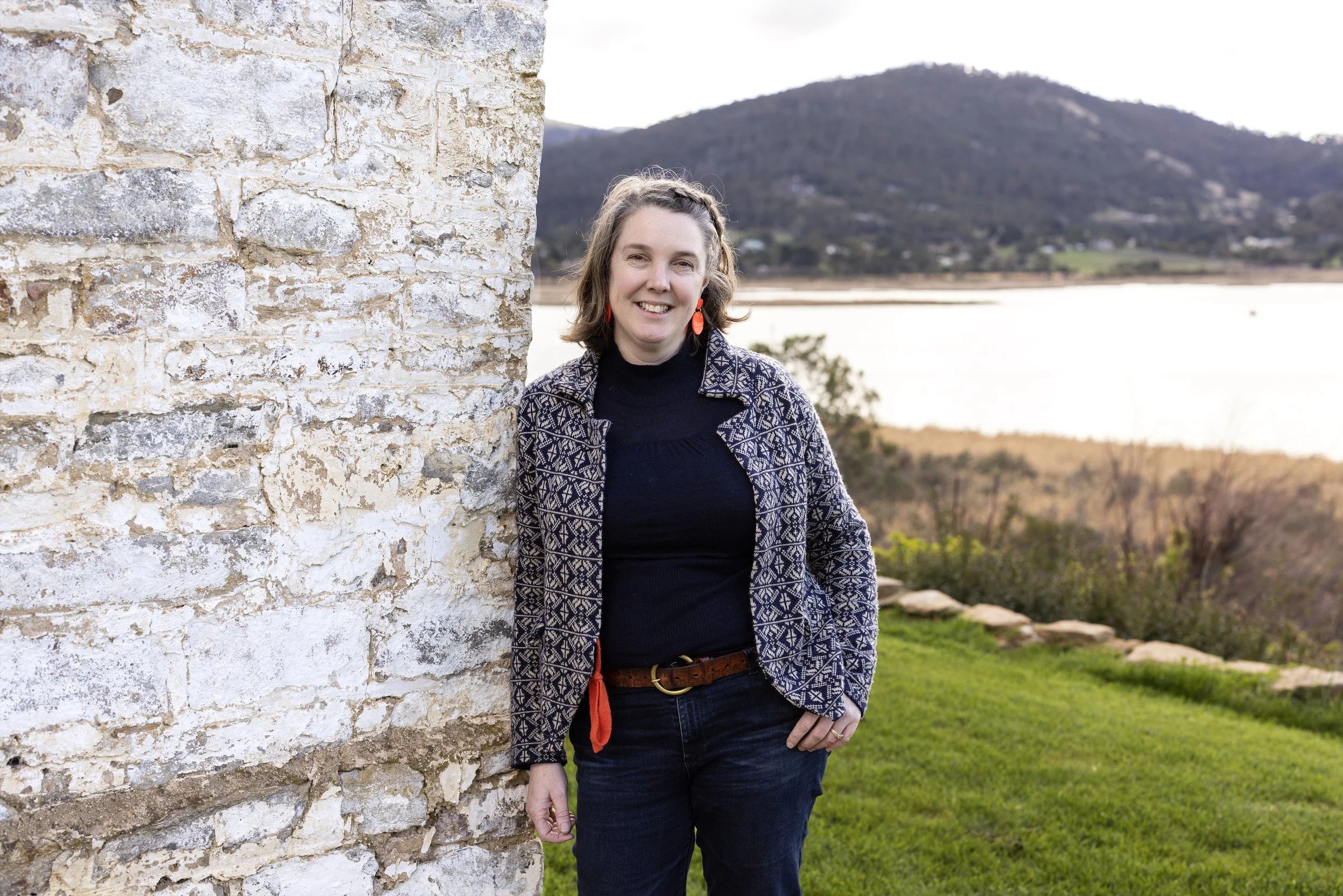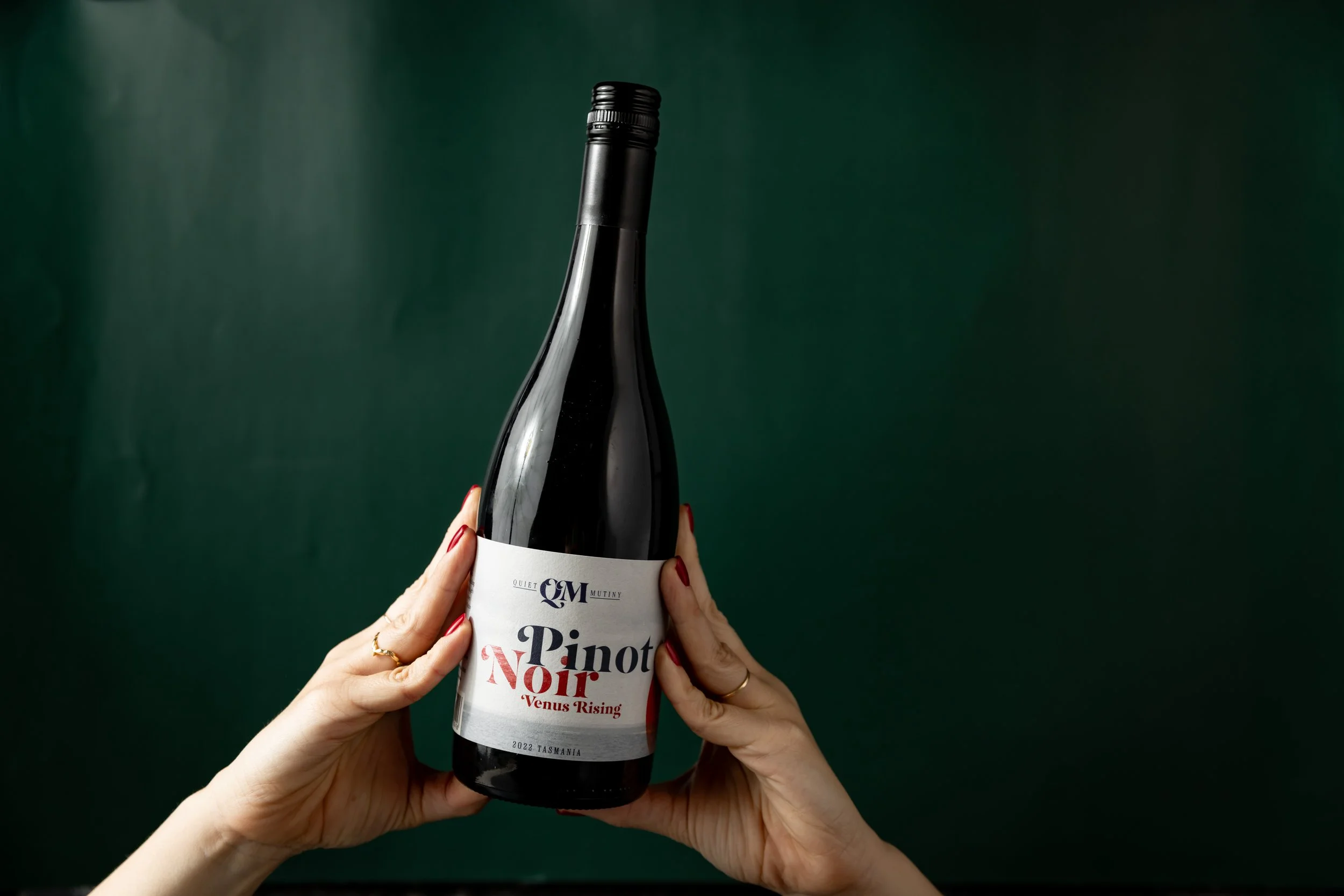Q&A: Greer Carland
A Tasmanian winemaker studied in Adelaide, worked vintages abroad and spent several seasons in Western Australia before returning home to make her own wines with some of the best grapes in the world.
▼
Greer Carland (image: Ben Macmahon)
You’re a winemaker for your own label Quiet Mutiny and your family’s label Laurel Bank. What got you into it?
I grew up on my family’s vineyard in southern Tasmania, and was driving the tractor and getting involved from a young age. I was pretty good at chemistry and art through school, so the idea of turning grapes into wine always seemed like a lot of fun. I studied winemaking in Adelaide after school, and then worked vintages overseas and in Australia, including in France, Chile, North America and the Hunter Valley. When I came back to Tassie in 2004, I made wine for other labels for several years, before starting my own label.
What do you love about making wine?
I enjoy the alchemy of the process. Every choice you make in the winery has an influence on what the wine tastes like in the end, and I feel like this speaks to my interests in both science and art. It’s a process but one with which I get to be very creative.
You spent time making wine all over the world, but ultimately came back to Tassie. Why did you want to make your wine here?
There’s something very special about Tasmanian wines. Every wine is a story of climate, soil and people, and we have a unique mix of each of those elements here that creates great wines that are revered on the world stage. We’ve got a cool climate that gives us these long ripening periods to build the flavours while also getting these beautiful, balanced acids in the glass. It’s perfect for ripening the varieties that we do so well down here, like Pinot Noir, Chardonnay, Riesling and sparkling, but we’re also finding success with some of the warmer climate varieties like Syrah because we get just enough of those warm temperatures, too. And we have a winemaking community of people who are very passionate about the little details that make a difference. They’re in the vineyard all the time, checking the vines and making decisions in response to what’s going on rather than following a routine or recipe book. We’ve had a huge influx of experienced, artistic, passionate people come into the Tasmanian wine scene, and really lift the bar on our wines.
What are your main considerations when you set out to make a wine?
I’m very fortunate to be able to use beautiful fruit from Tasmanian grape-growers who are also my family and friends. Getting my fruit from the same places each year means that I can have consistency in my wines, but also tell the unique story of the season in each vintage. Plus, it’s got to be yummy! When I started out making wine for my own label, the fallback position was that if I wasn’t any good at selling wine, at least I’d have plenty of good stuff to drink! I trust my palate and I’m grateful that there’s a group of people out there who agree with what I think is delicious.
Quite Mutiny ‘Venus Rising’ Pinot Noir (image: Dearna Bond)
Which wine must every visitor to Tasmania try while they’re here?
We’re the home of Pinot in Australia, really, so that really is the number one varietal to drink when you’re here. A lot of these beautiful wines are made in such small scale that they never even leave the island, so I’d encourage visitors to drink as much Pinot as they can! It goes with just about everything, but a Tassie Pinot will always taste best when it’s paired with Tasmania-focused food. Riesling, Chardonnay and sparkling are also very exciting here, and shouldn’t be overlooked.
How about you? What’s your favourite wine to drink?
I really love Pinot, too - it’s the ‘everything drink’. I’m also a big fan of Riesling and don’t understand why more people don’t like it. You can’t hide in a Riesling - it tells you its story, and it speaks of purity and place. A beautiful Riesling with some lovely local oysters and a squeeze of lime is just delicious.
What’s going to be the next big thing in wine?
I think that people are wanting to know more about where their wines come from, the stories behind them, and where their money is going when they buy it. Despite the cost-of-living concerns, provenance and quality is still really important to people, and there’s a sense that you have a choice about who you support through your purchases. This is where Tassie has an opportunity to shine, because our winemakers are all real people pouring passion, love and time into these products. When the storytelling becomes an even stronger part of the sales conversation, we are here and we’re ready to rock and roll.
▼


